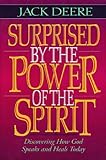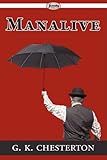Musings on the Parable of the Coffee Shop

The parts to a good espresso:
Roasting, Blending and Grinding
The first thing needed in preparing good espresso is a good blend of beans properly roasted and ground. As the espresso of God I too must be properly prepared and ground.
An espresso bean needs to be roasted darkly. As the roasting process deepens, the bean releases its essence, what we commonly call oils, and they form a dark luster on the outside of the bean. This is where the flavors reside.
I must submit to the fires of roasting. Following Christ means submitting to discomfort at times. I also must submit to those who God has placed in my life, like my wife and spiritual director, to bear God’s word to me.
A good complex espresso should contain a variety of beans to give it a round complex flavor.
A single origin espresso can be fun to play with, but nothing has the well roundedness of a blend.
I have to attend to what goes into me. Physically I must attend to my eating. I have to make a
discipline of eating breakfast, that’s been a tough practice, but my metabolism requires it. I also need to eat whole grains and lots of veggies. Likewise there are times when I must refrain from the food I love so much. I need to fast, and Fridays, before our Sabbath begins is a good time for that.
Grinding is critical.
The beans must be shaved into uniform particles, and the size of those particles control how long water is in contact with the beans and how well the extraction occurs.
Too slow and the water will completely leach the oils and also some of the bitter substances in the bean.
Too fast and the espresso will sour, lacking the oils to create a good
crema.
The grind needs to be adjusted several times throughout the day to respond to changing temperature and humidity.
I need to be adjusted throughout the day as well. I need to practice the presence of God. God is the Good Barista who is always fine-tuning the grind and watching the extractions. I will put myself back in his hand for adjustment through out the day, first by bringing him to mind moment by moment. Second, by praying the liturgy of the hours. The times set aside through out my day give me interaction with scripture, prayer, poetry and meditation.The tamp
Another key element to a good shot of espresso is
the tamp.
To receive the high pressure of the espresso machine and still keep the water slow enough to be in contact with the beans for about 30 seconds, the ground coffee has to be packed tightly.
It takes 40-50 pounds of pressure to pack the coffee into the filter basket.
Like the particles of coffee I have to be packed into my community. I need them around me. To this end part of my rule is to practice hospitality. For me this means conversations at the coffee shop and dinners at the table. At home it means being open and available to my children and wife. It means creating an atmosphere where it is easy to be good for anyone who comes through our doors. When possible it means extending the bounds of our family to others so that we can live in intentional community. Intentional community has its rules too, like praying the hours. At night we get together and have family devotions and pray the hours. I need to also get back into the habit of praying with Elaine every night, confessing our sins to each other.
Hospitality also means living with responsibility toward the Earth. Taking care of the world is also a way to create sacred space. I want to eliminate my carbon footprint and live the ‘r’s of reducing, reusing, and recycling. This is a part of the wider discipline of simplicity that affects our relationship in community.
As a part of a church, hospitality also means visiting other members and inviting them over.
Pulling the shot
The barista locks the portafilter into the group head and starts the hot water flowing. The pump starts to whir and forces water through tubes that wind through the boiler picking up heat and out to the group shower head where they form channels and saturate the puck. Then a small honey gold stream of espresso forms at the bottom of the portafilter. It runs out the size of a rat’s tail filling the demitasse with deep rust crema. Then after about 30 seconds when all the goodness of the bean is extracted, the barista observes a small pale dot form on the deep rust and stops the cycle.
I need the water of the Spirit flowing through my life. Here are some channels of study I recognize that I find the water of the Spirit to flowing: Poetry, Scripture, Art (both the appreciation and creation), Literature (I read a masterpiece of literature at bedtime) and Meditation (contemplation of people and nature top the practice).Enjoy
The good barista appreciates the color variations as the shot is pulled. The shot goes from deep rust to blond in tiger stripes. Then the barista will enjoy the aroma and warmth of the espresso as he gives it to the person who needs it. The crema on a good espresso is the hallmark of quality and the celebration of the shot.
I need times of enjoyment and rest in my life too. I need to live in Sabbath rhythms. As a pastor, Sunday isn’t a very restful day, so we have purposed to make sundown Friday to sundown Saturday our Sabbath. We want to incorporate rituals like lighting candles and blessings and meals together.
I also need to take a retreat 4-6 times per year to rest in the presence of my beautiful Barista.
Sabbath also means celebration. Both during the Sabbath time and throughout the week we need to set aside time for romance, getting a sitter, and having time as a couple.
We worship. This is a no brainer for a pastor; I get paid to worship with my congregation. As part of my rule for life, I also want to make it a point to worship with other traditions as often as possible.
Celebration also means music and dancing with abandon, creating and painting, and enjoying good food and great espresso.
Ultimately I am not my own God pulled this espresso for someone, I must be made perfect for Christ who I find in the little ones around me. That is who he hands the hot demitasse off to
after all.




















